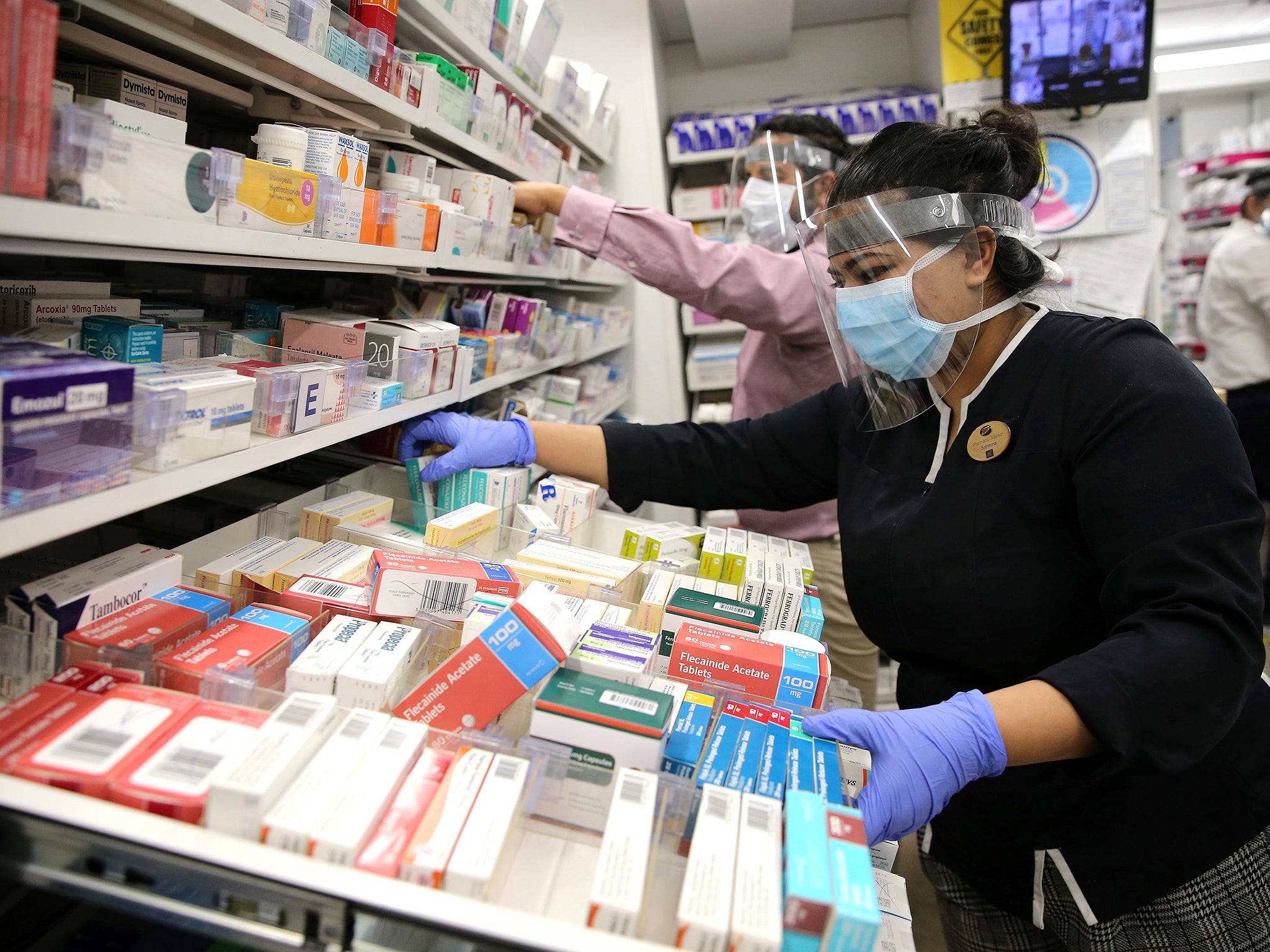We’re not capable of making the medicines we require any more
The UK claims to be ‘world-beating’ yet has no large-scale facilities manufacturing modern, complex drugs, writes Chris Blackhurst


On Monday, the prime minister will address the House of Commons and hold a Downing Street press conference to take the nation through the route out of lockdown. He is bound to laud our achievement in finding a Covid vaccine and in successfully rolling out a mass vaccination programme. Why not?
But as we get ready to put out the bunting and pat ourselves on the back there is another truth: Britain now has no large-scale facilities manufacturing modern, complex medicines (apart from some producing vaccines).
We may lead the world in R&D, as the Covid vaccine triumph has proved, but when it comes to actually making medicines our standing is woeful. As a result, thousands of highly-skilled, well-paid manufacturing jobs have simply disappeared, along with factories that have now been given over to retail parks and housing estates.
I’ve been looking into this as the closure of another pharmaceutical plant has been announced, by GSK at Ulverston in Cumbria. There’s been a factory on the site since 1948. Eight years ago, the then prime minister, David Cameron and GSK chief Andrew Witty paid a joint visit and announced a £350m expansion with the creation of 1,000 new jobs. Cue much celebration. Forget the expansion. Now GSK, under a different chief, Dame Emma Walmsley, is scrapping the entire facility and pulling out altogether.
The pandemic has brought home to the government our dire weakness in this area. While Oxford scientists were racing to find a vaccine, Downing Street was being made all too aware of shortages in the supply of other medicines and equipment. They were being made elsewhere and other countries were holding back their stocks.
This prompted Johnson to launch an initiative across Whitehall, in May 2020, called “Project Defend” to shift our national security focus to include resilience in supply lines of essential non-foods. The goal is for the UK, post-pandemic, to be no longer dependant on imports of vital goods. As well as healthcare it’s also taking in other sectors, including the technology industry.
The progress of Project Defend, which is being run out of the Foreign Office, is shrouded in mystery – but put it this way, the campaign has not prevented GSK from shutting another base. Ulverston manufactures antibiotics and they have been sold to Sandoz. That company will transfer the making of those products to their location in Austria. This follows the announcement last year of a joint investment between Sandoz and the Austrian government of more than €150m to boost the long-term competitiveness of its antibiotic manufacturing site and to guarantee the long-term supply of antibiotics.
They are building and preparing; we’re closing and reducing. They will have the products they require; we will be hoping and pleading
While Austria improves and strengthens, we’re reducing and growing weaker still. We’re not capable any more of making the medicines we require. The medical world is shifting towards monoclonal antibody therapies. To give some idea about their complexity: aspirin has 21 atoms in a molecule; growth hormone has 3,000 atoms; monoclonal antibody 25,000 atoms. The global biopharma market for these modern treatments is more than $300bn (£214bn) and growing at about 7 per cent a year. Where is the UK in this? Nowhere.
According to industry figures, at the last count in late October 2020, there were 1,700 biopharmaceutical manufacturing facilities in the world. These are the sites capable of producing modern medicines such as the much sought-after monoclonal antibodies. The US has 565, China 220, India 113, Germany 84, Japan 52, France 39, Ireland 23, and the UK nought. That’s right, zero.
This year is the first year when the UK is facing a balance of payments deficit on pharmaceuticals – 10 years ago it was one of the few industries that had a strong surplus. The shortfall is due to the lack of manufacturing – as brilliant and as headline-grabbing as it is, R&D does not help with the balance of payments.
It’s not only the lack of factories. We have now got half the number of people employed in pharmaceuticals than France, and only one-third compared to Germany. We just about compete in numbers employed with Switzerland and Spain. Again, not so long ago we were at the top of the tree and given the lack of investment this picture will only get worse.
Our expertise is being snapped up by foreign companies. A young chemical engineer graduating in the UK today really has no choice but to go overseas for a decent career. The US in particular, is awash with our best talent.
Successive UK governments have stood back and watched this happen. Our industry bodies, too – the record of the CBI in this area is lamentable. It’s a deplorable state of affairs.
Forget HS2 and tunnels across the Irish Sea – we’re talking about vital supplies. Do we really want to be reliant on the US, China, India, Germany and the rest? The pandemic has shown that when crisis hits, countries put the health of their citizens first. Other national and regional governments have made it their business to encourage enormous levels of investment. They are building and preparing; we’re closing and reducing. They will have the products they require; we will be hoping and pleading.




Join our commenting forum
Join thought-provoking conversations, follow other Independent readers and see their replies
Comments